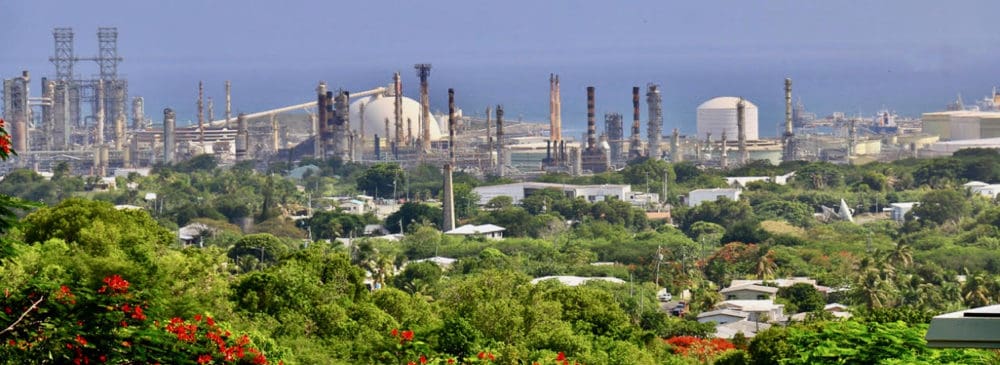
There are “strong indicators” that the new owners of the former Limetree Bay Refinery on St. Croix will need to obtain new Clean Air Act permits prior to restarting operations, according to the U.S. Environmental Protection Agency.
EPA is seeking additional information from West Indies Petroleum Ltd. and Port Hamilton Refining and Transportation about any current or planned changes to processes and emission units at the refinery that they purchased for $62 million at a bankruptcy auction in December, the agency said in a letter dated March 22.
The refinery has been closed since May when the EPA ordered then-owner Limetree Bay Refining to shut down just five months after it reopened the plant due to toxic flares raining pollution over thousands of St. Croix homes. Two months later, the Justice Department filed a complaint in federal court alleging that the refinery presented “an imminent and substantial danger to public health and the environment.” Limetree filed for Chapter 11 bankruptcy the same day.
WIPL attorneys Tom Eagan and Julie Domike asked earlier this month whether the company will be allowed to operate under the same regulatory permits that were transferred to Limetree in November 2018 after it acquired the 1960s-era refinery from original owner Hovensa in 2016.
The issuance of those Clean Air Act permits to Limetree under the administration of former President Donald Trump was a source of contention among environmental groups and St. Croix residents affected by pollution from the refinery.
The move grandfathered Limetree’s Title V Clean Air Act emissions requirements to those of Hovensa, and exempted it from obtaining a Prevention of Significant Deterioration permit, which requires long-dormant as well as new facilities to use the latest technology to control their emissions.
In its March 22 letter to the new owners, EPA said that based on the information currently available, “there are strong indicators to suggest that the refinery must obtain a Prevention of Significant Deterioration (PSD) permit prior to any potential startup of refinery operations.” The information will enable the agency to evaluate this issue further, before making a final determination, it said.
“As EPA continues to obtain additional information to reach a final decision on the need for this particular permit, we remain committed to ensuring that any potential restart of this facility would occur safely and in accordance with environmental laws,” said Lisa F. Garcia, EPA regional administrator.
“Given the concerning incidents at this facility that previously endangered the health of the people who live and work in surrounding communities, we will carefully review the information we receive and any new plans before determining our next steps in the permitting process,” said Garcia.
A PSD permit applies to new major air pollution sources or major modifications at existing sources that result in an increase of certain pollutant emissions (for example, particulate matter, sulfur dioxide, or nitrogen oxide) where the area in which the source is located attains or meets EPA’s national air quality health standards, the agency said.
In its letter, EPA has posed a series of questions to the new owners, seeking answers that will help it determine whether the refinery needs to obtain a PSD permit.
The purpose of the PSD permit program is to protect public health and welfare and ensure that new air pollution sources or changes at existing air pollution sources do not degrade air quality, the EPA stated in its correspondence.
“PSD permits are complex and specific to a given facility. In general, they require the facility to meet emissions limits that would be achieved by using the best available air pollution control technology and perform an air quality impact analysis, with an opportunity for public review and comment. If such a permit is required for the refinery on St. Croix, it must be obtained prior to startup of that facility,” according to the EPA.
EPA’s letter to West Indies Petroleum Ltd. and Port Hamilton Refining and Transportation is available on this web page.
Follow EPA Region 2 on Twitter and Facebook.





